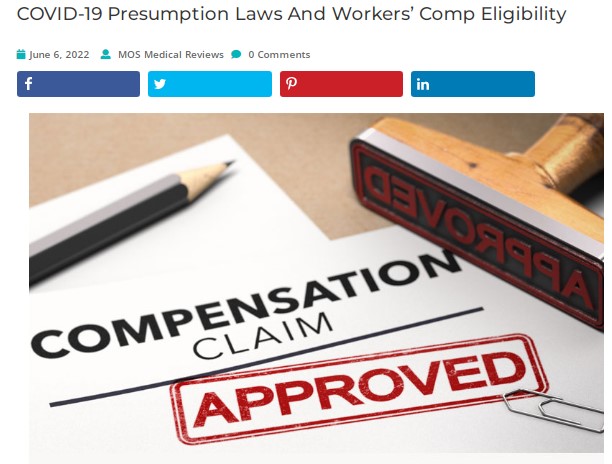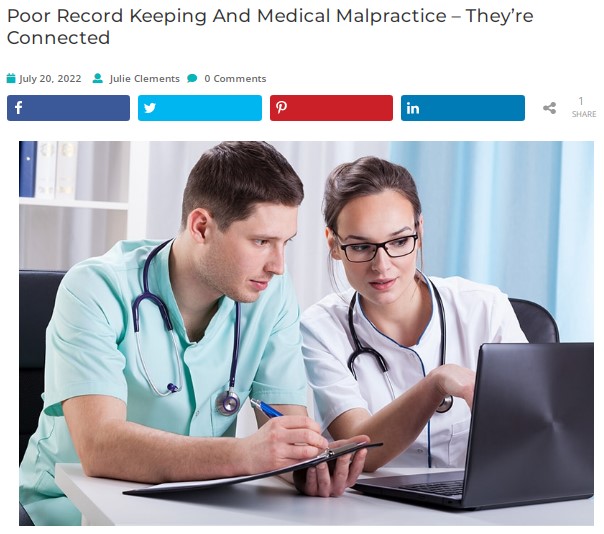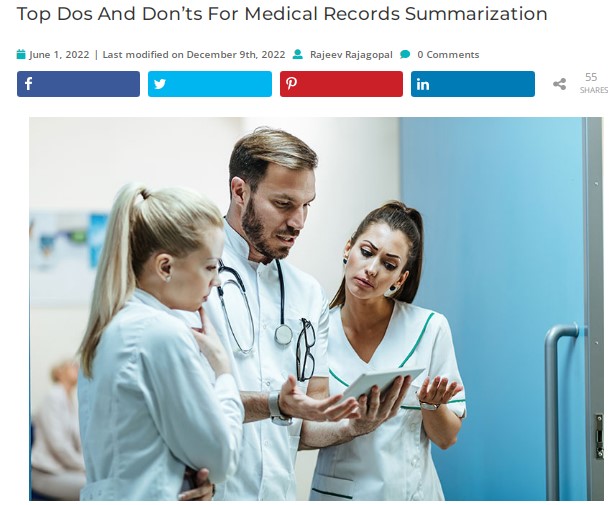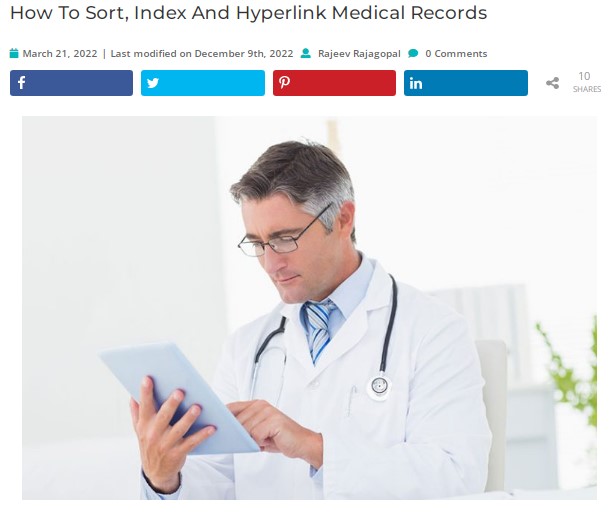2023 is here and it’s time to review our top blog posts of 2022. Our blogs highlight our expertise in providing reliable medical review solutions.
Our 2022 blog posts covered diverse topics such as HEDIS medical records review process, social security disability review process, COVID-19 presumption laws and Workers’ Comp eligibility, poor record keeping and medical malpractice, wrongful death claim, major social security changes to expect in 2023, deposition summary drafting strategies, and more.
HEDIS Measures and the Medical Record Review Process
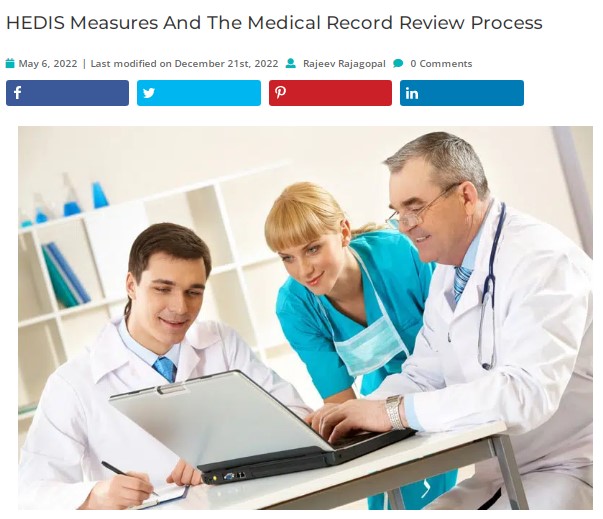
HEDIS is a valuable tool that is also used by more than ninety percent of U.S. health plans to review provider performance on important dimensions of care and service. Steps involved in the HEDIS medical records review process include accurate extraction of the medical data elements from the medical records, applying a clinical perspective while reviewing medical records, faultless coding of claims, and HIPAA compliance.
What Is a Disability Medical Record Review for Social Security Disability Benefits?
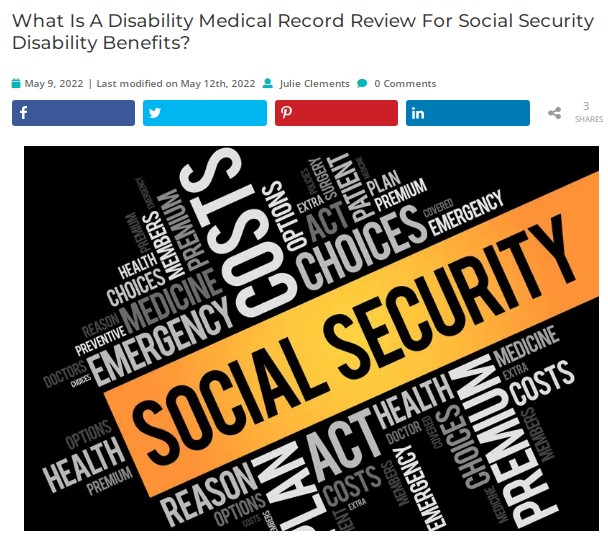
The social security disability review process enables the disabled person to demonstrate that he/she still has a qualifying disability and therefore require the benefits. Since medical records play a key role in this process, medical record review for social security disability firms is an important service. The SSA will collect and review all medical records related to the beneficiary’s health condition. How frequent are these reviews depends on the nature and severity of the impairment and whether it is expected to improve.
9 Questions a Paralegal/ Legal Assistant May Have When Reviewing Medical Records
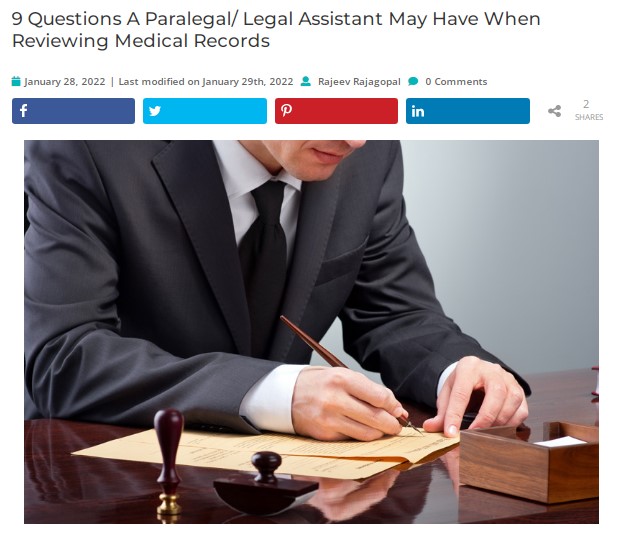
Paralegals, entrusted with medical record review, have to closely examine the nuances of the lawsuits pertaining to personal injury, workers’ compensation and medical negligence cases. Some of the questions that a legal assistant might come across when dealing with clients approaching legal firms for assistance are – “Should a paralegal be familiar with medical terms?”, “Is it important to know the circumstances surrounding the case of the client?”, “How to determine the relevance of the medical records that have to be retrieved?”, “What are the pre-requisites for accessing medical records from health care providers?”, “Is client authorization mandatory to access the records?”, “What should be done after retrieving the necessary medical records?”, and more.
COVID-19 Presumption Laws and Workers’ Comp Eligibility
A presumption law describes the conditions where an injury to a worker is presumed to have happened while working, and should be provided compensation. Normally, in workers’ compensation, the injured worker is expected to produce evidence for the injury, but in this case, the burden of proof for the source of the injury falls on the employer. Presumptive claims become relevant with the emergence of long-haul COVID symptoms.
Poor Record Keeping and Medical Malpractice – They’re Connected
Any error while preparing a medical chart or record is the ground for a medical malpractice claim, which can result in legal action against the healthcare providers. In medical malpractice litigation, medical records serve as the basic legal document. If the medical records are well-organized, well-written, and well-formatted, they can be the best defense for the healthcare provider.
What Is a Wrongful Death Claim? What Records Are Needed As Evidence?
A wrongful death claim is filed against a person who can be held liable for a death. Such lawsuits seek compensation for the survivors’ loss, such as lost wages from the deceased, lost companionship, and funeral expenses. Evidence required for wrongful death claim include medical records, death certificate, police and autopsy reports, witness statements, pay stubs and tax returns, and photos or videos.
Top Dos and Don’ts for Medical Records Summarization
While handling lawsuits, medical records summarization allows attorneys to extract the plaintiff’s relevant medical information. While summarizing medical records, it is important to ensure that the medical records are complete, correct, and convenient. Dos include highlighting the most recent information first, focusing on clinically relevant information, recording the rationale for clinical decisions, and reviewing to identify conflicting data. Don’ts include avoiding discriminatory remarks, including socio-economic details only if it is deemed necessary, avoiding using shorthand or abbreviations that aren’t widely accepted, and ensuring that the medical records do not have imprecise information.
How to Sort, Index and Hyperlink Medical Records
Medical records organization and indexing services enable attorneys to litigate cases successfully. Medical records are sorted by classifying relevant information that supports the attorney in the litigation process. The sorted medical records are chronologically arranged and indexed. Medical records organization facilitates the access of all the necessary facts in an easily detectable format by closely analyzing records, categorizing records into sections and subsections, sorting documents according to the date range within the section, removing duplicate multiple records, and more.
Strategies for Drafting Deposition Summaries
Deposition summaries provide a brief overview of the deposition and helps in the pretrial preparation for attorneys. Attorneys rely on deposition summaries to prepare for pretrial, easily analyze the large volume of information, and speed up the trial process and verdict. The different types of deposition summaries include page-line summaries, page-by-page summary, topic-by-topic summary, chronological summary, or narrative summary. Deposition summary preparation strategies include reviewing the pleadings, identifying the information needed, and focusing on presentation.
What Are The Major Social Security Changes to Expect In 2023?
Changes are made to social security each year based on economic factors. In 2022, the SSA (Social Security Administration) raised retirement benefits by 5.9% to account for the increasing inflation. Some of the projected changes in 2023 are – good boost to benefits, rise in wage base, increase in the maximum benefit beneficiaries can receive, and increase in earnings limit. Our blog discusses these trends.
We look forward to providing our readers with more informative content on medical record review and related topics.
Check out our blog section for more updates.
Read our infographic on Top 10 Medical Record Review Blog Posts 2022 [Infographic]


